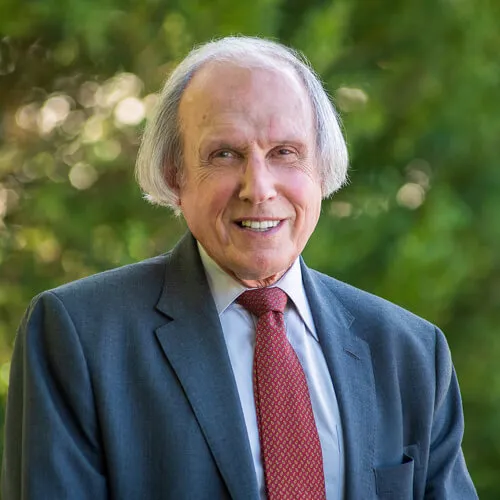The Graduate College is pleased to present the Teams Live Event: The Cancer-Compromised Genome, a lecture by University Scholar Gary S. Stein, Ph.D. on Monday, March 22, 2021 at 4:30 pm. The event can be joined at http://go.uvm.edu/universityscholars.
A mechanistic and clinical challenge is understanding and treating cancer as a disease of compromised cellular and molecular organization. Cancer onset and progression are functionally associated with aberrant genetic (DNA-encoded) and epigenetic (non DNA-encoded) mechanisms that influence the transmission and retention of regulatory information during cell division. Cancer cells must sustain their compromised genome structure (deletions, amplifications, rearrangements), epigenetic status and function—otherwise cancer would be cured by cell division. Each regulatory component of gene expression is linked to architectural organization of regulatory machinery in the cell nucleus. Fidelity of nuclear structure-gene expression interrelationships are obligatory for physiologically responsive control and provide novel options for high-resolution tumor diagnosis and therapeutic interventions with specificity and minimal off-target consequences.
Trained in biology and pathology, Gary Stein is dedicated to translating mechanistic understanding of cancer biology to clinical applications. The central theme of his research is control of proliferation and differentiation emphasizing cancer-compromised genetic and epigenetic regulation. His research, a long-standing partnership with Janet Stein and Jane Lian opened the field of skeletal biology and pathology to molecular, cellular and epigenetic investigation. He pioneered and is at the forefront of characterizing genetic and epigenetic regulation that mediates cell cycle control in lineage-committed and stem cells. He has made pivotal contributions to understanding the transcriptome by defining mechanisms that govern combinatorial organization, integration and assembly of regulatory machinery in nuclear microenvironments; higher-order genomic organization; noncoding RNAs; and epigenetic control of cell fate and lineage commitment in biological control and cancer. His recent discoveries of mitotic bookmarking and “oncofetal epigenetic control” are novel dimensions to tumorigenesis. Professor Stein has more than 950 publications and has edited more than 25 books. He has mentored more than 175 graduate students, research and clinical fellows, junior faculty scientists and physician/investigators.
He is committed to accelerating prevention, early detection, treatment and survivorship of breast and prostate cancer and leukemia, as well as mechanistic and clinical understanding of skeletal metastasis. He advocated collaboration as Director of the University of Massachusetts Cancer Center, Director of the Massachusetts Center for Stem Cell Biology and Regenerative Medicine, Chair of the University of Massachusetts Medical School Department of Cell Biology, as Director of the UVM Cancer Center and now as co-principal investigator of the Northern New England Clinical and Translational Research Network, Co-Director of the Vermont Cancer Coalition and Chair of the UVM Department of Biochemistry. He has directed graduate, post-graduate and faculty development programs and serves on regional, national and international scientific advisory boards that establish science policy, research priorities and incentivize clinical trials.
Gary Stein received the most prestigious research awards from the American Academy of Orthopedic Surgeons, the Orthopedic Research Society and the American Society of Bone and Mineral Research, Brown University and the UVM Larner College of Medicine. He previously held the Haidak Distinguished Professorship at the University of Massachusetts Medical School and currently holds the Arthur Perelman Professorship at UVM. He is also an honorary Professor at Universidad Andrés Bello in Chile, a fellow of the American Association for the Advancement of Science, and was elected to the Pakistan Academy of Sciences in 1997.
